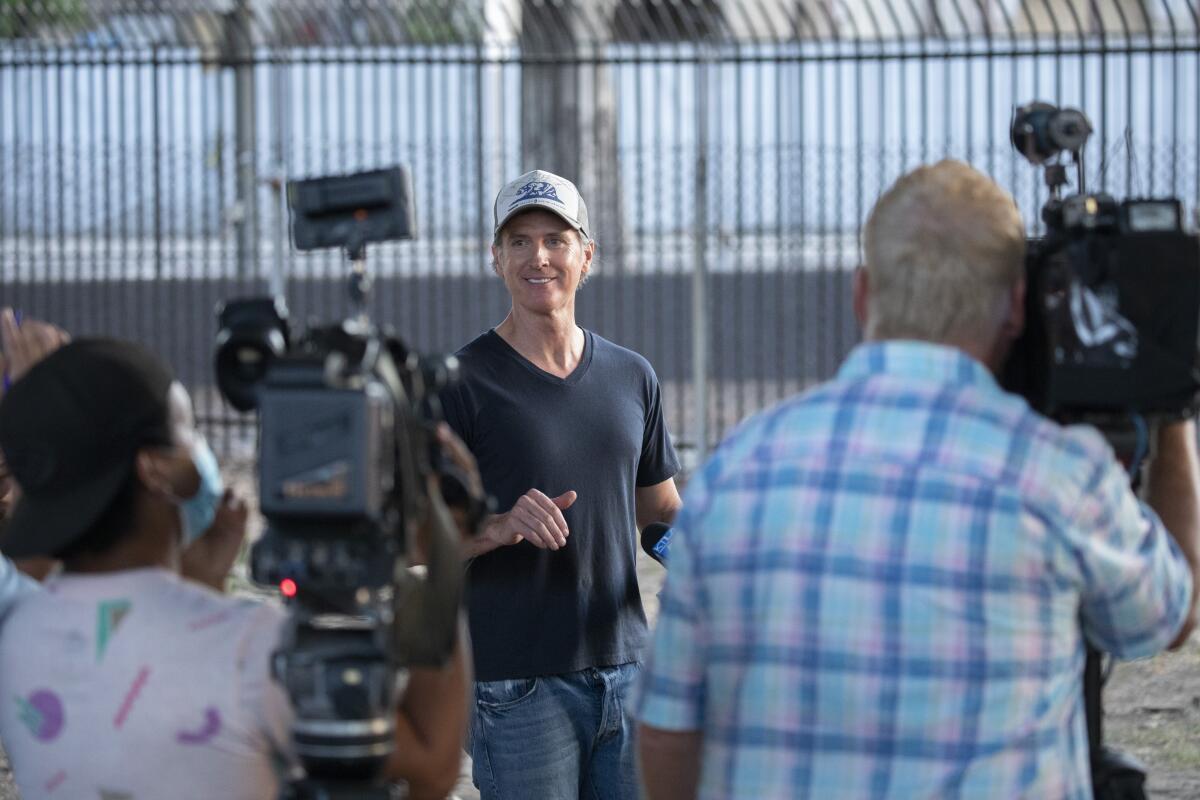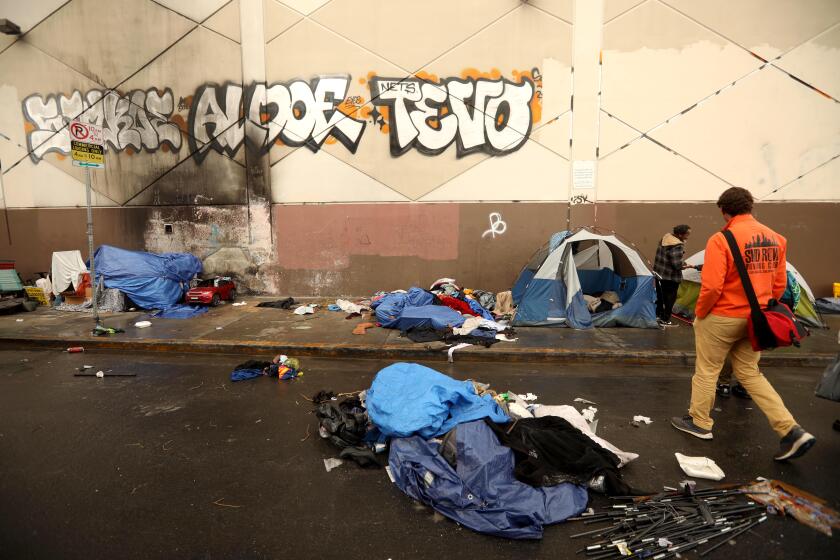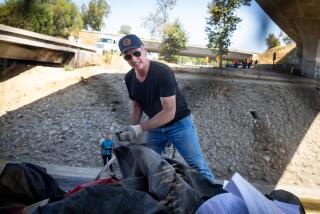Editorial: Clean California is ending. So are jobs for formerly homeless and incarcerated people

- Share via
In the three years since Gov. Gavin Newsom announced the Clean California initiative, massive amounts of litter and trash have been hauled away from state highways and the land around them by thousands of people who might not otherwise have found work.
The $1.2-billion effort substantially augments the California Department of Transportation’s usual litter removal and resulted in the collection of more than 2.3 million cubic yards of trash — enough to fill 700 Olympic-sized swimming pools — according to the governor’s office. Clean California also offered grants to tidy up streets, and Caltrans hosted “dump days” that brought in thousands of mattresses and tens of thousands of tires. Along the way, the cleanups turned vacant lots into spaces the public can use; in San Francisco, one site is now a tree nursery at the foot of the Bay Bridge.
The governor’s budget proposal would slash the program that encourages biking and walking but would sink billions into widening roads, which aggravates traffic and pollution.
Just as important as the cleanups are the jobs the initiative created. Clean California has funded the employment of thousands of workers who have the most difficulty getting hired — mainly those who are or were homeless, or spent time in prison or jail.
But now the entire Clean California initiative is about to disappear. With it goes the $50-million annual budget that allowed the Back2Work transitional employment program to subcontract with nonprofit agencies to hire the work crews.
Clean California wasn’t one of the programs slashed to balance the state budget for the new fiscal year that starts July 1. It was always set to sunset after three years, though it may have been renewed had the state not been facing a $45-billion budget deficit. With housing and welfare programs on the chopping block, Clean California didn’t make the Legislature’s priority list.
Gov. Gavin Newsom and Democratic lawmakers work to settle their differences over a few key budget cuts to reduce California’s massive deficit.
We know state leaders are struggling with tough choices, but it’s heartbreaking to see cuts in programs devoted to hiring the people for whom employment is desperately hard to get. Housing, of course, is what unhoused people need most of all. But homeless people also need — and want — jobs. People coming out of jail and prison need employment as well, but must fight the bias against hiring formerly incarcerated individuals and might lack the skills to get hired. In all of these cases, work is not just a source of income but a stabilizing force in people’s lives.
While there is still $25 million left in the Clean California budget for hiring these workers, it won’t go far. The 100 crews around the state that were working for Caltrans through the Clean California program will be cut back to 48 next month.
One of the agencies affected is Chrysalis, a Los Angeles-based nonprofit that places hundreds of marginalized workers in various jobs and offers a job-readiness program. It hired 15 crews to do litter abatement for Caltrans, funded through Clean California. But with the funding set to end, four of those crews have already been shut down and Chrysalis expects to shut down three more at the end of this month, leaving about 90 people — those on the crews as well as supervisors and operations managers — without work.
While Houston and Austin make strides, Los Angeles, San Francisco and other Golden State cities continue to struggle. But there are solutions available.
It’s awful that these workers will lose good-paying jobs due to a loss of funding. Chrysalis pays $18 an hour and its jobs are intended to be transitional — offering people experience and a bridge to higher-paying and longer-term careers. And the nonprofit takes workers who are still on parole or probation and works around those requirements.
If Clean California can’t fund these programs, then we’d like to see other local officials and companies hire these workers and others in similar transitional employment programs. They could do what some Business Improvement Districts already do and contract with Chrysalis for work that can include trash pickup, graffiti removal and sidewalk power-washing. Los Angeles City Council district offices all have discretionary funds. Council members should consider hiring some of these cleaning crews.
Even though Chrysalis and other agencies will continue to supply workers to Caltrans through preexisting contracts, Clean California provided a huge bump in hiring. When the financial picture improves, we hope the current or future governor will revive Clean California and the important task of helping vulnerable people find stable work.
Clean California may go away, but California is far from clean. There are plenty of streets, sidewalks and parks that need tending. And there are crews of people eager to get the work.
More to Read
A cure for the common opinion
Get thought-provoking perspectives with our weekly newsletter.
You may occasionally receive promotional content from the Los Angeles Times.













